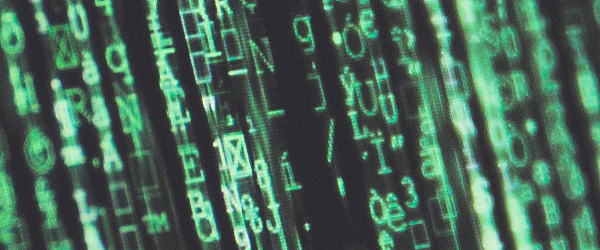 Numerous people believe that many of the world’s problems today exist because we have turned our backs on what is “natural” and because we are out of touch with nature. They suggest going back to living in a more “natural” environment.
Numerous people believe that many of the world’s problems today exist because we have turned our backs on what is “natural” and because we are out of touch with nature. They suggest going back to living in a more “natural” environment.
Others believe that trying to go back to what is “natural” limits our scientific progress and, because “natural” behaviors employ old traditional conventions, it could lead to suppressing modern social values of freedom and inclusion.
As an example, who hasn’t heard those against same-sex marriage refer to homosexuality as something unnatural? We sure don’t want to go back to those more “natural” periods of time where archaic laws discriminated against groups in our society, defended slavery, or limited women’s rights.
If we take away the scientific advancements on medicine and technology, perhaps our life could be more “natural,” but our life expectancy would probably be half of what it is today and our way of living rudimentary.
John Stuart Mill said that every good end that improves the lives of humans comes from altering the course of nature, not following it.
Spanish philosopher Fernando Savater also adds, “we could often mention that something ‘artificial’ (human made) is better than something ‘natural’ (absent from human touch) and that its functionality exists precisely to protect us from ‘nature’ itself.”
Diseases like cancer are “natural” while medical solutions for it, like chemotherapy, are “artificial.” Extreme cold weathers are “natural,” but living in a house with a heating system to protect us from the cold is “artificial.”
Pet lovers should also know that their cute puppy Fido is not “natural” at all, but an “artificial” human invention because dogs, which evolved from a shared common ancestor with wolves, are the result of thousands of years of selective breeding.
Along the same line, modern fruits and vegetables have been genetically modified (and improved) through many years of artificial selection. If you were to see their “natural” appearance, you wouldn’t want to eat the ancestors of today’s produce like bananas, sweet corn, watermelon, carrots, and peaches, just to name a few.
“Nature” refers to things as they are, but not as they should be. Furthermore, “nature” explains the elements of a natural world as it exists without human beings or civilization. In other words, anything absent from human touch.
Nevertheless, it’s important to note that “artificial” human-made creations like spaceships, clothing, computers, prescription glasses, and even agricultural fields, are all built from elements found in nature.
As our specie evolved through the years, it became “natural” to create human-made “artificial” concepts like laws to protect us and establish order, language to communicate, and society to live in cooperation.
When it comes to our “human nature,” culture plays an important role in influencing the way we think, feel, and act.
Among other historical periods, the Age of Enlightenment saw philosophers debating “human nature” from a moral standpoint. For Jean-Jacques Rousseau, men are good by nature, but corrupted by society. His contemporary Immanuel Kant, in contrast, argued that humans need principles guided by society in order to do good. Without them, men can be wild and do things that contravene society.
Following the aforesaid counterpoint, a philosophical observation by Savater indicates that human influence is not only reflected in the creation of something, but also in its decision to not influence something.
For example, are the breathtaking landscapes of Yosemite National Park “natural” because they have remained untouched for thousands of years, or are they “artificial” because men have deliberately decided not to develop the area?
If the “artificial” process of reforestation is to rebuild natural habitats and to restock forests in needed regions, will the outcome of a new “natural” green environment be an “artificial” triumph?
While it is true that artificial systems have allowed humanity to live better, it has also brought significant dangers that are undermining the future of humankind.
Weapons of destruction used in wars, plastic & electronic waste polluting our oceans, uncontrolled industries contaminating our air, and financial institutions driving people into poverty, are all human-made calamities.
We need to understand this: nature has no obligations towards the human race. It will continue to act and respond accordingly to how it is treated. And because nature is indifferent to humans, we need to learn from it, from its natural laws, from its behaviors and disasters to better understand how we act upon it.
Through thousands of years we have altered nature for our own benefit, and these actions (good and bad) are now irreversible.
We don’t have the time to let nature recover on its own. What we have now going forward is the obligation to save nature and the permanence of humanity with responsible human-made ideas and solutions.
If we destroy today what we need tomorrow, that will be our end. A self-inflicted defeat.
 Why is overpopulation the biggest threat humanity faces today?
Why is overpopulation the biggest threat humanity faces today? One of the biggest threats humanity faces today is the high probability of a jobless future, where robots and automation systems will take over all our jobs.
One of the biggest threats humanity faces today is the high probability of a jobless future, where robots and automation systems will take over all our jobs.